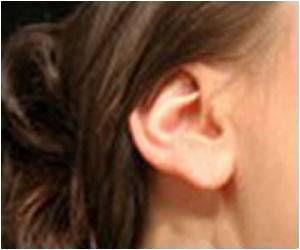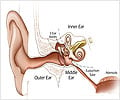According to results of a new study by experts at Johns Hopkins, older adults with hearing loss are more likely than peers with normal hearing to require hospitalization and suffer from periods of inactivity and depression.

The latest NHANES findings, to be published in the Journal of the American Medical Association online June 11, are believed to be the first to show the broader, economic and long-term effects of hearing loss on general health.
"Hearing loss may have a profoundly detrimental effect on older people's physical and mental well-being, and even health care resources," says senior study investigator and Johns Hopkins otologist and epidemiologist Frank Lin, M.D., Ph.D. "Our results underscore why hearing loss should not be considered an inconsequential part of aging, but an important issue for public health," says Lin, an assistant professor at the Johns Hopkins University School of Medicine and the university's Bloomberg School of Public Health. According to Lin, as many as 27 million Americans over age 50, including two-thirds of men and women aged 70 years and older, suffer from some form of hearing loss.
Among the study's other key findings were that older adults with hearing loss were 36 percent more likely to have prolonged stretches of illness or injury (lasting more than 10 days), and 57 percent more likely to have deep episodes of stress, depression or bad mood (for more than 10 days). NHANES participants answered detailed questionnaires about their physical and mental well-being.
"Health policymakers really have to consider hearing loss and its broader health impact when making decisions, particularly for older people," says Dane Genther, M.D., lead study investigator and a Johns Hopkins resident in otolaryngology - head and neck surgery. Genther supports expanded Medicare and Medicaid reimbursement for hearing-related health care services, wider installation of hearing loops in various facilities, and more accessible and affordable approaches for treating hearing loss.
Lin says social isolation resulting from hearing loss may explain the physical and mental declines - as well as the cognitive deficits - that afflict older adults. This, in turn, may lead to more illness and hospitalization, he says. His team already has further research under way to see if treating hearing loss with counseling and hearing aids can reduce people's risk of cognitive decline and dementia.
Advertisement
Funding support for this study and the NHANES study was provided by the National Institutes of Health (NIH), and the Centers for Disease Control and Prevention. Corresponding grant numbers are T32-DC000027-24 and 1K23-DC011279. Additional research support was provided by the Eleanor Schwartz Charitable Foundation and a Triological Society and American College of Surgeons Clinician-Scientist Award.
Advertisement
Source-Newswise















